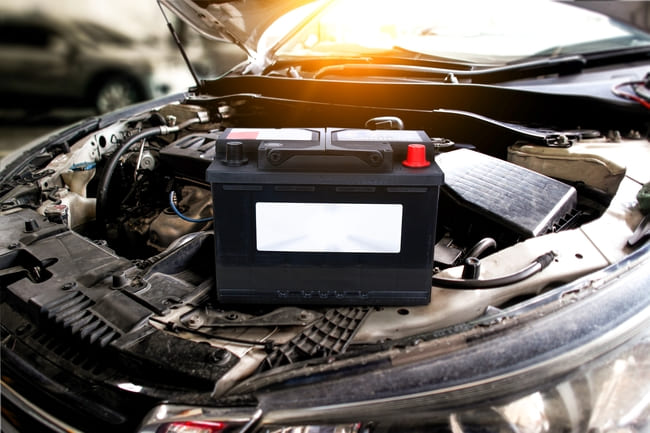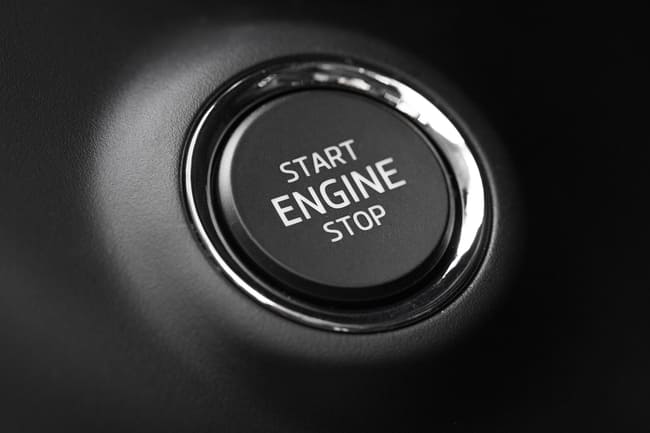Table of Contents
What is a start stop battery? Test, cost, lifespan
If your car has a start-stop system, it needs a special battery that can handle frequent starts and stops. Start-stop batteries are designed to charge and often discharge, using advanced tech like AGM or EFB to stay reliable. In this article, we’ll explain how they work and help you choose the right one.
What is a start stop battery?
Unlike standard batteries, start-stop batteries are built to endure repeated engine starts and deep cycling. EFB batteries deliver approximately twice the cycle life of standard starter batteries, while AGM types offer enhanced durability and superior cycling performance. This is thanks to their upgraded design: EFBs use advanced positive plate materials, and AGMs feature glass mat separators for quicker recharging and improved deep discharge recovery. If your vehicle has a start-stop system, it is important to use the right battery to make sure that it functions correctly and does not fail too soon.
What is an AGM start stop battery?
An AGM (Absorbent Glass Mat) start-stop battery is a premium car battery built to handle the demands of modern vehicles with start-stop technology. If your car shuts off and restarts frequently in traffic, this battery is designed for you. It uses a special glass mat to absorb the electrolyte, making it leakproof, maintenance-free and highly durable.
What sets AGM batteries apart is their ability to deliver strong, reliable power again and again. They recharge quickly and cope effortlessly with the heavy electrical load from features like heated seats, infotainment systems, and regenerative braking.

Stop-start battery vs normal
Stop start batteries are specifically built for vehicles with start-stop systems that regularly switch the engine off and on to improve fuel efficiency. These batteries are designed to deliver reliable power during frequent engine restarts and maintain all electrical functions when the engine is off. They are far more robust than conventional batteries and are made to withstand deep cycling and repeated charging.
In contrast, normal car batteries are intended for occasional engine starts and steady power delivery while driving. They are not equipped to handle the constant stop-start activity or the higher energy demands of modern systems. If a conventional battery is used in a start-stop vehicle, it can wear out quickly and fail to perform properly. For the best performance, safety and battery life, your car must have the right battery type for its system.
Here’s a quick comparison of stop-start batteries and normal car batteries to help you understand the key differences. This table outlines their main features, from purpose and technology to performance and cost, so you can see which battery type best suits your vehicle's needs.
| Feature | Stop-Start Battery | Normal Battery |
|---|---|---|
| Purpose | For vehicles with Stop-Start systems | For vehicles without Stop-Start systems |
| Types | AGM (Absorbent Glass Mat), EFB (Enhanced Flooded Battery) | Standard lead-acid |
| Charge/Discharge Cycles | High (up to 4–10 times more than normal) | Low (approx. 50,000 cycles) |
| Deep Discharge Resistance | High | Low |
| Price | More expensive (30–100% higher) | Less expensive |
| Lifespan | 4–6 years (depends on use) | 3–5 years |
| Charge Recovery Speed | Fast | Slow |
| Performance Under Load | Stable and reliable | Less stable |
| Compatibility with Regenerative Braking | Yes | No |
Do stop start batteries need to be programmed?
Yes, many start stop batteries need to be programmed after replacement, though this varies significantly by vehicle manufacturer. Some cars use self-learning battery management systems that automatically adapt to a new stop start battery over time, particularly certain BMW, Mercedes, and other European models. However, many vehicles do require manual registration with the Battery Management System (BMS) using diagnostic tools. This step ensures the car recognises the new battery and adjusts the charging strategy to suit its condition, type and capacity.
Without proper registration where required, the system may overcharge or undercharge the battery, which can shorten its lifespan and affect the performance of the stop-start function. If your car has a start-stop system, it's always worth checking with a qualified technician whether registration is required before installing a new battery.

 BOSCH Battery
12V 60Ah 680A AGM Battery
BOSCH Battery
12V 60Ah 680A AGM Battery


 VARTA Battery
12V 60Ah 540A Lead-acid battery
VARTA Battery
12V 60Ah 540A Lead-acid battery
Can you use a stop-start battery in a normal car?
You can safely use a stop-start battery in a standard car, and it’s often a worthwhile upgrade for better performance and longer life. AGM and EFB batteries are built to withstand frequent charge-discharge cycles, making them tougher than regular batteries. But you should never downgrade – if your car came with an AGM battery, stick with AGM to ensure system safety and compatibility.
AGM batteries can upgrade EFB-equipped vehicles, but not the other way around. Though start-stop batteries cost more upfront, their durability and reliability often make them the smarter long-term choice, especially in tough driving conditions.
Do I need a stop start battery?
If your car has a start-stop system, then yes, you need a stop start battery. These batteries are built to cope with the repeated engine restarts and to power all electrical systems when the engine is paused, such as at traffic lights. A regular battery simply is not designed for this kind of load or cycling and will wear out quickly if used in a start-stop vehicle.
Stop start batteries, such as EFB or AGM types, are more robust and can handle deeper discharge and faster recharging. They also support features like regenerative braking and smart alternators, which are common in modern cars. Fitting a standard battery in a car that requires stop-start technology can lead to reduced performance, error messages or even system failure.

How to test a stop start battery
To test a stop-start battery, use a multimeter or a specialised car battery tester to check its voltage and overall condition. A fully charged stop-start battery should show a resting voltage of around 12.6V or higher. When cranking the engine, the voltage should not fall below 10V. If it does, the battery may be weak or near the end of its life.
For a more accurate check, AUTODOC mechanics recommend using a battery conductance tester, as it measures the battery’s internal resistance and overall health. Many garages use this tool to assess EFB or AGM batteries properly. Testing should always be done with the engine off and after the vehicle has been sitting for a few hours. If your stop-start system is slow to activate or fails to work, it could be a sign that the battery is struggling. Regular testing helps spot issues early and avoid unexpected breakdowns.
Stop start battery replacement cost
Replacing a stop start battery typically costs between £150 and £400, depending on the battery type, vehicle model and where you have it fitted. EFB (Enhanced Flooded Battery) options tend to be on the lower end of the range, while AGM (Absorbent Glass Mat) batteries, used in more advanced systems, are usually more expensive. These batteries are built to handle high loads and deep cycling, which contributes to their higher price.
Additional costs can come from installation, especially if your vehicle requires battery registration or programming. Labour charges may add £30 to £100, depending on the garage and the complexity of the system. Other factors affecting the cost include battery brand, warranty length and whether the battery needs to be ordered in. While the initial price is higher than a standard battery, investing in the correct stop-start battery helps ensure reliable performance and avoids costly problems later.
 VARTA Battery
12V 80Ah 740A Lead-acid battery
VARTA Battery
12V 80Ah 740A Lead-acid battery
 BOSCH Battery
12V 70Ah 630A Lead-acid battery
BOSCH Battery
12V 70Ah 630A Lead-acid battery
 YUASA Battery
12V 65Ah 600A with handles, with load status display, EFB Battery
YUASA Battery
12V 65Ah 600A with handles, with load status display, EFB Battery
 BOSCH Battery
12V 60Ah 540A Lead-acid battery
BOSCH Battery
12V 60Ah 540A Lead-acid battery
 BOSCH Battery
12V 90Ah 720A Lead-acid battery
BOSCH Battery
12V 90Ah 720A Lead-acid battery
Start stop battery lifespan
A start stop battery usually lasts between 4 and 6 years, but how long yours lasts really depends on how and where you drive. If you do lots of short trips or drive in stop-and-go traffic, your battery works harder and may wear out faster. On the other hand, regular longer drives can help it stay healthy for longer.
These batteries are specially built to handle the extra strain from all the engine restarts and electrical load when the engine is off. But even the best ones need a bit of care. If your stop-start system stops working as expected, it might be a sign that your battery is getting tired. Keeping an eye on its condition and replacing it with the right type when needed can save you hassle later. With proper maintenance, you can get the most life and the best performance out of your battery.
A useful video on this topic:
Things you should know about car batteries
Top products related to this topic:










